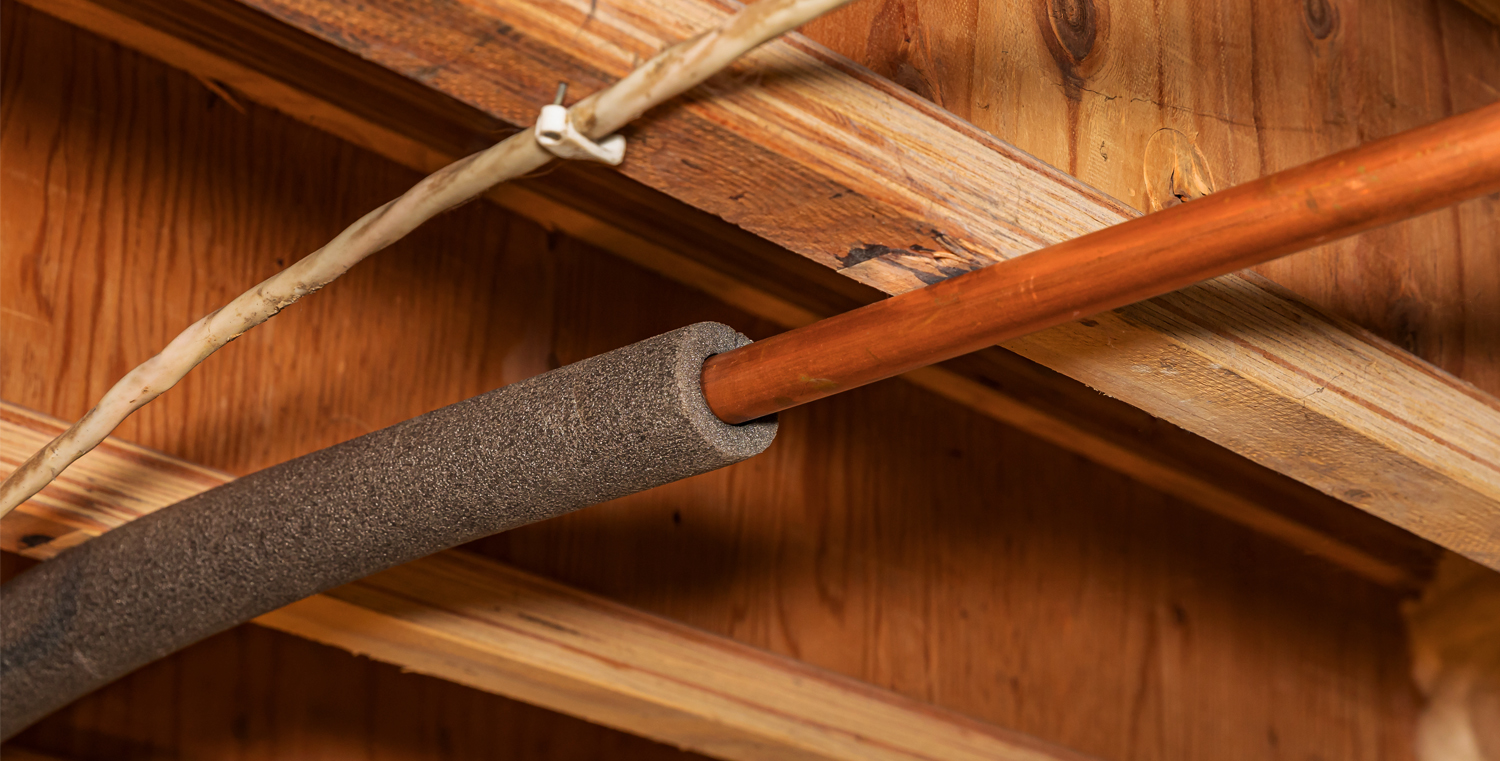Ahh Omaha winters… The perfect time of year for cozy fireplaces, warm scarves, hot chocolate, and taking extra precautions to protect your plumbing!
If you’ve spent a winter in a snowy town, you already know just how dangerous cold weather can be for your pipes. The lower the temperature drops, the higher your risk of frozen plumbing, burst pipes, and a flooded basement, attic, or garage.
But with a bit of foresight, an eye on the forecast, and these 7 handy tips, you can stop this emergency plumbing repair before it starts.
Follow these 7 simple tips to keep your pipes from freezing this winter:
1. Insulate every exposed pipe
The exposed pipes in your basement, crawl space, attic, and home exterior are the most likely to freeze and burst each winter. Give these pipes a little extra protection by wrapping them in pipe insulation from your local hardware store.
Pipe insulation is inexpensive and very easy to install. Just cut the foam tubing to size, slide it over the exposed plumbing, peel off the adhesive backing, and adhere the two sides together— forming 360° of warmth for your chilliest pipes.
2. Stow your garden hose and drain the valve
Always remove your garden hose from the wall before the freeze sets in. For added protection, turn the water to your outside spigots off, then open the spigots until the last bit of water has drained out. This will prevent water trapped in these exterior pipes from freezing and bursting, creating a hard-to-reach leak— and an expensive emergency plumbing repair.
3. Open the cabinets on exposed walls
Allow indoor air to warm your pipes by opening the cabinet doors under any sink on an exterior wall. Leaving these doors open overnight allows the air to reach the uninsulated areas of your pipes.
4. Run a trickle of water through your at-risk pipes
To further protect your exposed exterior pipes, turn the nearest faucet on at a slow trickle. Allowing even just a little water to continuously run through the pipes can prevent them from freezing.
5. Close your garage door
If you have exposed pipes running through your garage, keep the door closed as much as possible to keep its temperature above freezing.
6. Insulate your basement, crawl space, and attic
To prevent pipes in these open areas from freezing, add a layer of insulation over the pipes. Not only will this protect them from the worst of the cold, extra insulation can help improve your home’s overall efficiency— and reduce your heating bill in the process.
7. If you’re going on a winter vacation, keep your thermostat on warm
Your thermostat should always be set to 55 degrees or higher to prevent your interior pipes from freezing while you’re away.
What should you do if you suspect you’ve got a frozen pipe?
If you turn on your faucet and get only a trickle of water, you may already have a burst pipe. Turn off your water at the main shut-off valve and call a licensed plumber right away. If you have one frozen pipe, chances are there may be more in your home.
While it may be tempting to thaw the ice plug with your handy blow torch or propane heater, resist the urge! Using an open flame on those pipes can damage your plumbing or even start a fire— and the last thing you need is a leaky pipe and smoke damage!
Pipe burst? Call Burton’s emergency plumbing repair team!
Our emergency plumbing service team is available 24 hours a day. We keep our trucks fully stocked with thousands of plumbing parts and tools, and we’ll do our best to get you fixed in just one trip. Don’t worry, Just Call Burton!







